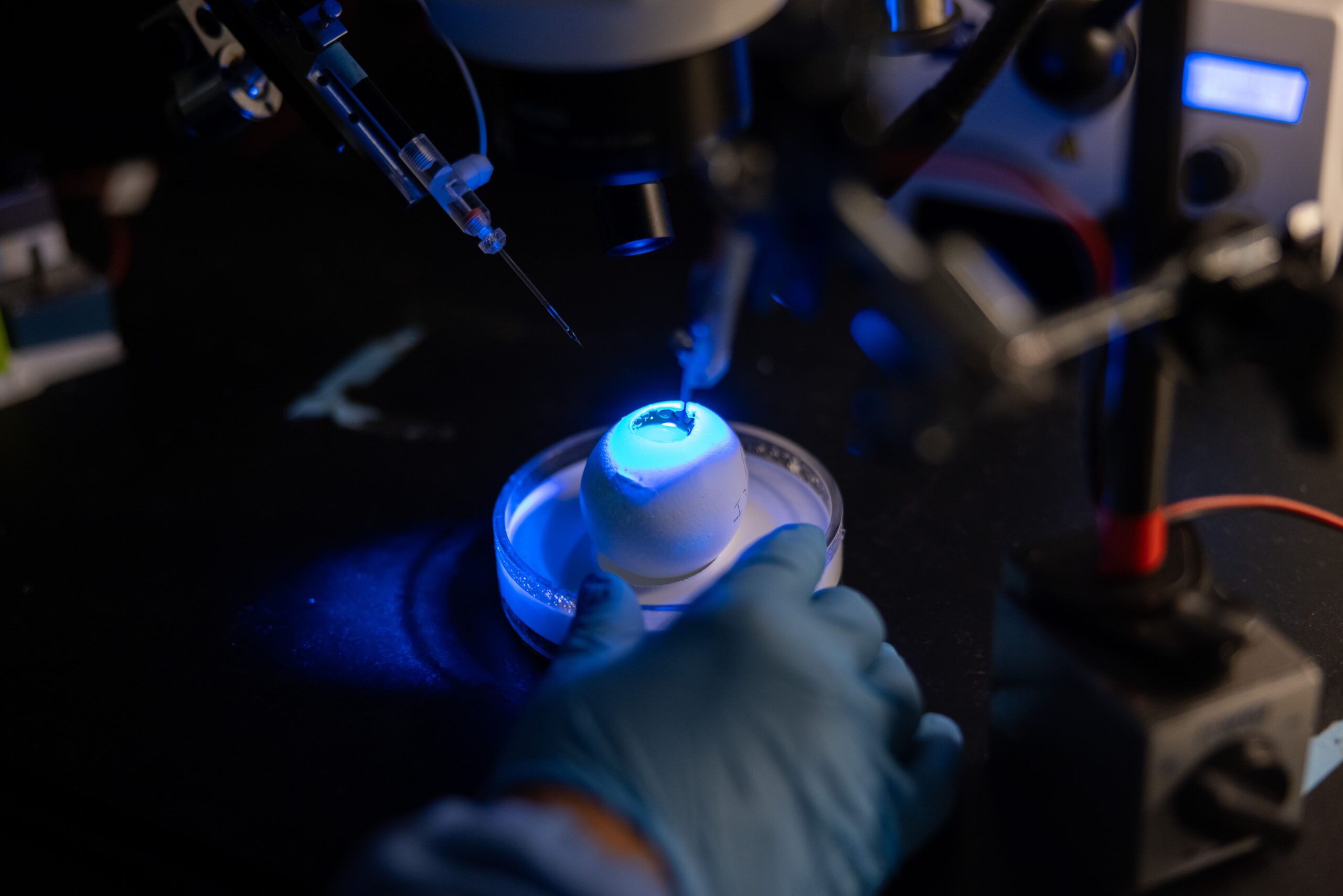Sanchez Lab Research Projects
The long-term goal of our research program is to elucidate mechanisms regulating neural coding in the developing auditory system. Deficits in neural coding result in numerous auditory pathologies, such as auditory neuropathy and temporal processing disorders.
(1) Neurotrophin signaling in the auditory brainstem
The purpose of this research is to determine molecular mechanisms of normal and irregular neurotrophin function in the auditory system. Neurotrophins are growth factor proteins critical for neurodevelopment and neuroplasticity. They are abundantly expressed in the nervous systems of all vertebrates. In the auditory system, neurotrophins are important for normal inner ear development and maintenance, but neurotrophin function in the central auditory pathway remains elusive. The goal of this research is to fill this gap in knowledge. Specifically, we will (1) characterize neurotrophin function in the auditory brainstem, (2) determine the molecular mechanism by which they operate, (3) identify their role in establishing normal structure and function, and (4) delineate functional consequences by genetic modification of their biological properties. The research proposed is essential and timely. A better understanding of neurotrophin function provides a foundation for developing stem cell-based therapies that target novel therapeutic pathways for auditory-related disorders.
(2) Voltage-dependent ion channel function in the auditory brainstem
Auditory brainstem neurons fire synchronized action potentials by “locking” to a specific phase of incoming afferent inputs. This form of neural synchrony depends on specialized time-coding properties found in brainstem neurons and is important for normal auditory temporal processing. Numerous studies have shown that specific ion channels contribute to temporal processing abilities in the mature brainstem but how they regulate such properties in the developing circuit is lacking. This line of research investigates the development of voltage-dependent ion channel function in the regulation of time-coding properties in the auditory brainstem.

